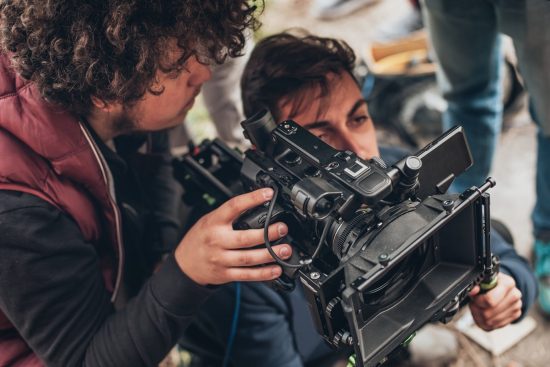Documentaries – are they more challenging to make than fictional films?
Which is the toughest to handle as a filmmaker, documentary or fiction? What about dramatizations of true stories, which mingle elements of both? The truth is that every type of movie raises unique challenges. What suits you best will depend on the unique qualities you bring to the table. The important thing is to understand the differences from a production standpoint so that you can work out what your talents are best suited to.
Working within your means
As with any movie, it’s important to think realistically beforehand about what kind of documentary you’re capable of taking on. There’s a big difference between patching together some interviews and recent TV footage, as in, say, Brent Hodge’s Pharma Bro, and intermingling those elements with multiple other art forms, as in the likes of Eliane Raheb’s Miguel’s War. If you’re a beginner on a low budget, you can go a long way by sticking to a subject you already know intimately, as Michael Moore did with Roger & Me, which many critics still consider to be his best work. It takes an established figure such as Katharina Otto-Bernstein to make a film such as The Price of Everything because that’s just not possible without an established network of contacts and the kind of reputation that will make people sit up and take notice. Remember that simple movies can still make a big impression if handled well. As you gain experience, you’ll probably want to experiment more and get more creative, but you don’t have to do that early on just to try to get noticed.
Getting serious about research
Movies such as Michael Madsen’s Into Eternity or Keir-La Janisse’s Woodlands Dark and Days Bewitched: A History Of Folk Horror might carry similar weight to academic theses, but there’s no reason why a documentary has to be this densely packed with information to be valuable. The likes of Werner Herzog’s My Best Fiend or Benjamin Ree’s The Painter and the Thief, for instance, derive much of their power from character rather than facts. Whatever type of movie you are making, however, it is important to get the basic facts rights, and documentary makers have a special duty in this regard because people trust them as sources of truth. By way of example, if we compare two films about Moe Berg, Ben Lewin’s drama The Catcher Was a Spy (2018) and Aviva Kempner’s documentary The Spy Behind Home Plate (2019), we see that Kempner unwilling to engage in the same speculation about the subject’s personal life because she felt that it was essential to have solid evidence to back up all of her contentions.
Staying in control
Every filmmaker faces pressure to make compromises during the production process, whether from funders or from influential actors eager to get all the best lines. However, there are specific challenges in documentary making because subjects don’t always know their place. If you’re interviewing individuals – and especially if you’re profiling them – you may find it difficult to retain your objectivity as you face all sorts of subtle emotional pressures to portray them in the manner they want. Laura Poitras acknowledges that she got too close to her subject to the point where her work was at risk of being compromised when she made her movie – itself titled Risk – about Julian Assange. Sometimes the pressures are not so subtle, as when Parvez Sharma received death threats for making A Sinner in Mecca, a documentary about going on the Hajj as a gay man. A documentarian needs both insight and courage to stay loyal to the truth regardless.
Storyboarding in reverse
When you’re filming something fictional, you’ll start with a clear plan. You’ll know what you need to shoot and, at least roughly, how you’re going to arrange the finished footage. With a documentary, everything happens in reverse. Making Clapboard Jungle, Justin McConnell spent his time pursuing leads and recording every possibly useful interview he could get, only to find himself with 350 hours of raw footage to work through. This isn’t particularly uncommon. What filmmakers in this position have to do is catalog all their material, identify themes within it, structure a film based around that, and then begin a ruthless process of whittling it down. It’s usually impossible to get through this without sacrificing scenes to which one feels a strong attachment, and there are often tears involved. At the end of it, one may still find oneself having to source or film further material in order to bridge scenes and fill gaps.
Some people are cut out for this sort of work and some are not. Documentarians rarely attract the same praise as fictional filmmakers, but their work can still be hugely influential, changing the way that people think or helping to preserve vital pieces of history. Whatever type of movie you make, there will be times when it’s hard and times when you wish that you had never started. The real question is, what kind of movie will make you feel that the struggle is worth it?










